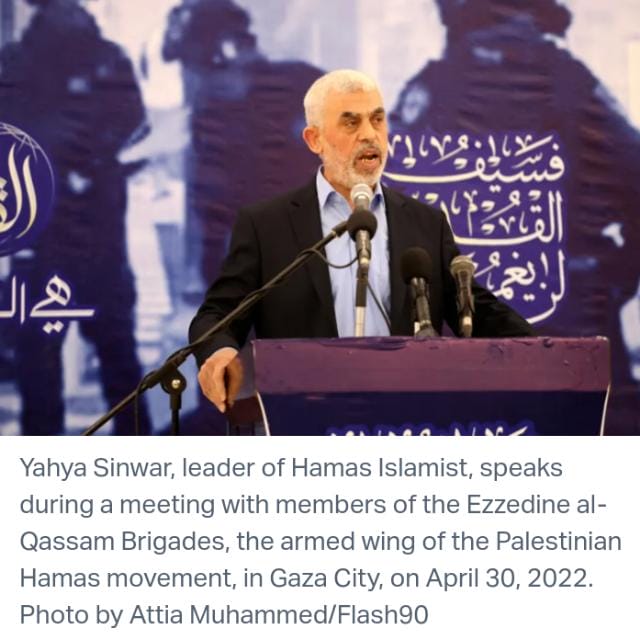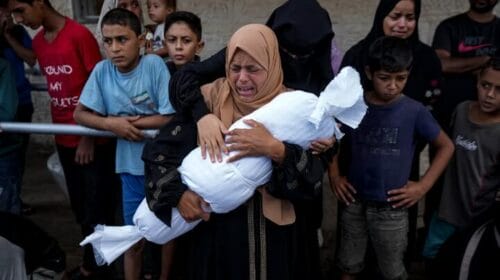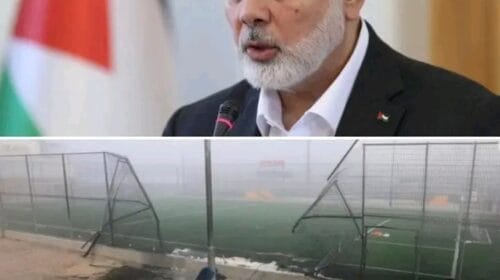Hamas leader Yahya Sinwar killed in Gaza firefight
By Twink Jones Gadama
Yahya Sinwar, the top leader of Hamas, has been killed by Israeli Defense Forces (IDF) soldiers during a chance encounter in the southern Gaza Strip town of Rafah. The IDF confirmed Sinwar’s death on Thursday evening, following initial reports and speculation earlier in the day.
According to Israeli media, cabinet ministers were informed of Sinwar’s confirmed death after DNA tests were conducted on his body. Foreign Minister Israel Katz issued the first official statement affirming Sinwar’s death, calling him “the arch-murderer responsible for the massacre and atrocities of October 7.”
The IDF and Shin Bet later confirmed Sinwar’s death in an official statement, stating that “dozens of actions carried out by the IDF and the Shin Bet in the last year, and in the last few weeks in the area where he was killed, reduced the area of activity of Yahya Sinwar, who was pursued by the forces, and led to his death.”
Sinwar’s death is seen as a significant blow to Hamas, which has been responsible for numerous attacks on Israel. Israeli Defense Minister Yoav Gallant vowed that the IDF “will reach anyone who tries to harm the citizens of Israel or the security forces and will settle accounts with him.”
The firefight that killed Sinwar occurred during a routine IDF operation above ground, not in a tunnel, according to Army Radio. Israeli soldiers spotted Hamas terrorists entering a building in Rafah, near the Philadelphi Corridor, and ordered a tank strike, partially collapsing the heavily booby-trapped building.
Suspicions that Sinwar was killed arose when IDF soldiers inspected the damage with a drone, noticing a close physical resemblance to Sinwar among the three bodies found. A large amount of Israeli cash and multiple passports were discovered on the bodies.
Gallant sent a message to the people of Gaza, stating, “The man who brought disaster over the Gaza Strip, from whose murderous actions you suffer – the end of this man has come. This is the time to come out, release the hostages, raise your hands, surrender.”
The IDF assured families of hostages still held by Hamas that none were harmed in the firefight. The incident marks a significant escalation in the ongoing conflict between Israel and Hamas.
Background on Yahya Sinwar
Yahya Sinwar, born in 1962, was a prominent Hamas leader and the architect of the October 7 invasion and massacre in southern Israel. He was known for his hardline stance against Israel and his involvement in various militant activities.
Reactions to Sinwar’s Death
Israeli officials hailed Sinwar’s death as a major achievement, with Gallant stating, “We’ve settled the score with Sinwar.” The international community is closely watching the developments, with concerns about potential escalation in the region.
Implications of Sinwar’s Death
The killing of Yahya Sinwar marks a significant shift in the balance of power within Hamas and may lead to increased tensions between Israel and the militant group. The incident may also impact the ongoing conflict in Gaza, potentially leading to further violence or attempts at negotiation.
As the situation unfolds, one thing is clear: Yahya Sinwar’s death represents a major blow to Hamas and a significant development in the complex and volatile Israeli-Palestinian conflict.
Latest Developments
The IDF has continued operations in Gaza, targeting Hamas infrastructure and personnel. International organizations have called for restraint, citing concerns about civilian casualties.
Regional Reactions
Egypt, a key mediator in the Israeli-Palestinian conflict, has urged calm. The Palestinian Authority has condemned Sinwar’s killing, calling it “a dangerous escalation.”
Global Response
The United Nations has expressed concern about the potential for further violence. The United States has reiterated support for Israel’s right to self-defense.
Conclusion
Yahya Sinwar’s death marks a significant turning point in the Israeli-Palestinian conflict. As tensions rise, the international community must prioritize diplomacy and restraint to prevent further bloodshed.




